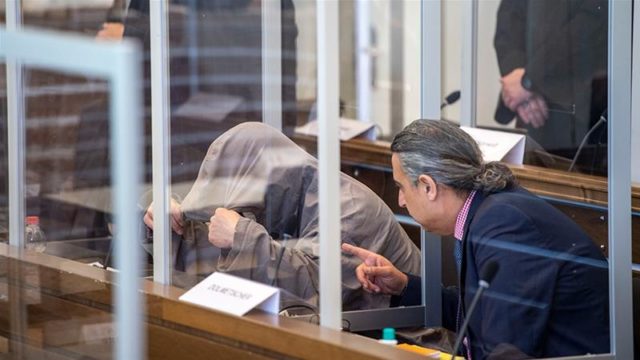
The trial of two former Syrian intelligence officials began in Koblenz, Germany on Thursday, marking the first such court appearance for high-level human rights violations in Syria.
Prosecutors charged Anwar Raslan, a former colonel in a Syrian General Intelligence Directorate, ran investigations at the notorious al-Khatib detention facility in Damascus. Under Raslan’s leadership, guards at ‘Branch 251’ tortured at least 4,000 opposition activists at the start of the Syrian war, from April 2011 to September 2012. Evidence suggests 58 prisoners died as a result of the abuses, which included beatings, rape, and electric shocks.
The case will be complicated by Raslan’s defection from the Syrian government in 2012. In July 2014, he entered Germany as an asylum seeker and even represented a Syrian opposition delegation to UN-sponsored peace talks in Geneva that year.
German authorities arrested Raslan and his co-defendant, Eyad al-Gharib, in February 2019. Al-Gharib, one of Raslan’s subordinates, gained refugee status in 2014 after he fled Syria. Prosecutors now accuse him of arresting 30 anti-government demonstrators knowing they would be sent to Branch 251 to be tortured and mistreated.
“The trial will provide an overall picture of the crimes committed by the Syrian government,” said Wolfgang Kaleck, a lawyer representing the 16 witnesses in the proceedings. The court will hear some of the first sworn testimony from survivors of torture and former detainees about abuses made in the name of President Bashar al-Asad. Prosecutors will also use evidence from Caesar, an alias for a former member of the Syrian military. Caesar smuggled photos and documents showing the systematic killing of more than 11,000 detainees from 2011 to 2013.
The underlying basis for Raslan and al-Gharib’s prosecution rests on Germany’s legal principle known as universal jurisdiction. Federal prosecutors can pursue individuals for crimes against humanity and war crimes whether or not they are connected to Germany.
Meanwhile, international efforts to prosecute human rights abuses from the nine-year-long Syrian civil war have been largely met with Russian obstruction. Moscow has repeatedly used its seat on the UN Security Council to veto referrals to the International Criminal Court in the Hague and other important actions on the Syrian conflict. However, late last year the UN General Assembly overcame Russian hurdles and finally approved $17.81 million to fund the International, Impartial and Independent Mechanism (IIIM). The mechanism will now have a funding source to collect evidence and assist outside criminal proceedings for atrocities in Syria.

